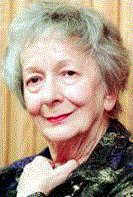| RADOMAN KANJEVAC - preporučujem |
|
|
 Vislava Simborska Vislava Simborska Poet and essayist awarded Nobel Prize in 1996. Born in 1923 in Kórnik near Poznań. Educated at the Jagiellonian University in Cracow. Lives in Cracow since 1931. Her first volume of poetry Dlatego żyjemy (That's Why We Live) was published in 1952 and followed by Wołanie do Yeti (Calling to Yeti), 1957; Sól (Salt), 1962; Sto pociech (No End of Fun), 1967; Wszelki wypadek (Could Have), 1972; Wielka liczba (Great Number), 1976; Ludzie na moście (People on the Bridge), 1986; Koniec i początek (The End and the Beginnig), 1993. Worked as an editor of a literary periodical Życie Literackie and contributed a column entitled "Lektury nadobowiązkowe" ("Facultative Readings"). Currently the column appears in Gazeta Wyborcza, one of the most important Polish newspapers and, in spite of its light character, it is the only way the poet presents her critical views. Awarded The City of Cracow Literary Award, The Goethe Literary Award, The Herder Award, The Award of the Polish PEN Club. Famous for the intranslatability of her poems, she was translated into many languages by well-known translators like Stanisław Barańczak and Clare Cavanagh, Karl Dedecius and Anders Bodegĺrd. All her books sell in thousands of copies both in Poland and abroad. In Cracow known also as the author of limericks and hand-made collage postcards. |
| SOME
PEOPLE LIKE POETRY
Some
people - Like
- Poetry
- |